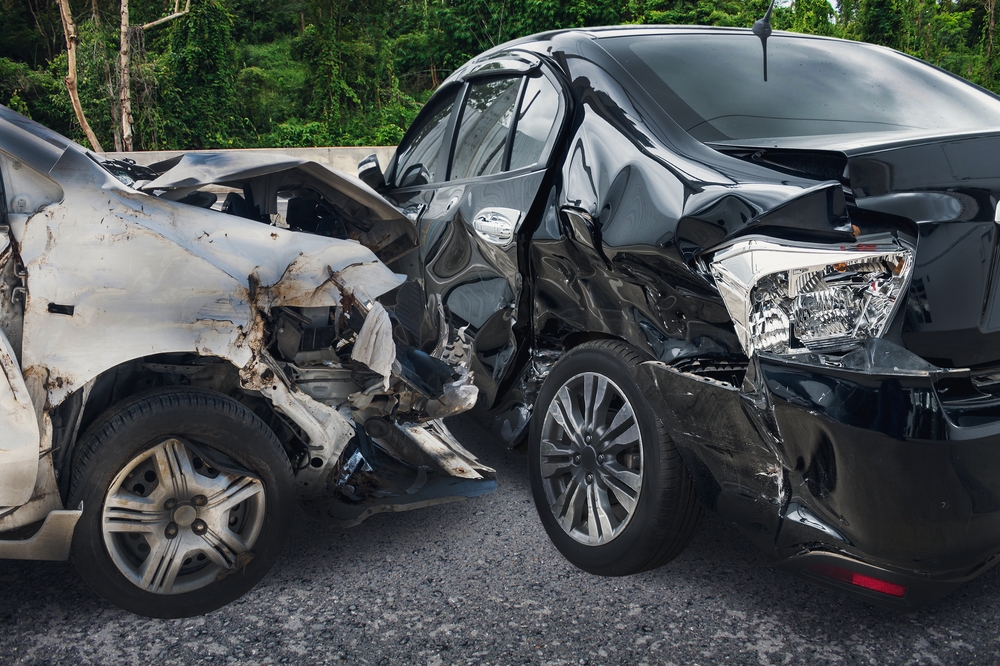
Being involved in an auto accident can be a distressing experience, and navigating the legal aftermath can be complex, especially in a state like New Jersey. This article aims to provide you with a comprehensive guide to frequently asked questions (FAQs) related to auto accidents in New Jersey. Whether you're a driver, passenger, or pedestrian, understanding your rights and responsibilities is crucial to ensuring a smoother post-accident process.
FAQ #1 What Should I Do at the Scene of the Accident?
After an auto accident in New Jersey, taking the right steps can significantly impact the outcome of any potential legal claims. These steps include:
1. Safety First: Ensure the safety of all parties involved and seek medical attention if necessary.
2. Contact Law Enforcement: Report the accident to the local police, and obtain an official accident report.
3. Exchange Information: Exchange contact, insurance, and vehicle information with the other parties involved.
4. Gather Evidence: Document the scene by taking photos of the vehicles, damages, and any relevant road signs.
5. Witness Statements: If possible, collect contact information from witnesses who can provide unbiased accounts of the accident.
6. Notify Your Insurer: Report the accident to your insurance company as soon as possible.
FAQ #2 When Can I Sue the At-Fault Driver?
In New Jersey, you can step outside the no-fault system and sue the at-fault driver if you sustain injuries that meet the state's "verbal threshold" criteria. These criteria typically involve injuries that result in significant scarring, disfigurement, fractures, loss of body parts, or permanent injuries.
FAQ #3 Should I Speak to the Other Party's Insurance Company?
It's advisable to consult your attorney before speaking to the other party's insurance company. Anything you say could be used against you. Let your attorney handle communication to ensure your rights are protected.
FAQ #4 What if I'm Injured?
Seek medical attention immediately. Your health is a priority. Follow your doctor's advice and keep all medical records. If you plan to seek compensation, these records will be crucial in establishing the extent of your injuries.
FAQ #5 How Does New Jersey's No-Fault Insurance Work?
New Jersey operates under a no-fault insurance system. Regardless of fault, your own insurance policy covers your medical expenses, regardless of who caused the accident. However, in cases of serious injuries or certain thresholds being met, you may be able to file a lawsuit against the at-fault driver.
FAQ #6 When Can I File a Lawsuit After an Auto Accident?
In New Jersey, you can file a lawsuit for an auto accident if you've sustained:
- Permanent Injury: A personal injury that results in significant impairment or disability
- Significant Scarring or Disfigurement: Visible scars or disfigurement resulting from the accident
- Loss of a Fetus: If a pregnant woman loses her unborn child due to an accident
- Death: If the accident results in a fatality, the family may pursue a wrongful death claim
FAQ #7 How Long Do I Have to File a Lawsuit?
New Jersey has a statute of limitations for filing auto accident lawsuits. Generally, you have two years from the date of the accident to file a lawsuit. However, exceptions apply, so consult with an attorney to determine your specific timeline.
FAQ #8 Can I Still Sue if I'm Partially At Fault?
Yes, New Jersey follows a modified comparative negligence rule. Even if you're partially at fault, you can still file a claim for damages, but your compensation will be less.
FAQ #9 How Can an Attorney Help in Mediation or Trial?
An attorney can act as your advocate during mediation sessions, where parties aim to reach a settlement outside of court. They can provide a strong understanding of your rights and the potential value of your case, negotiating on your behalf to secure a fair settlement that addresses your needs without the need for a trial.
If a settlement cannot be reached, an attorney will represent you in court. They will present your case, gather and present evidence, cross-examine witnesses, and navigate the complexities of the legal process. An experienced attorney's guidance is invaluable in building a compelling case and maximizing your chances of a favorable outcome.
Whether pursuing mediation or trial, having an attorney by your side ensures that your rights are protected, your case is presented effectively, and you have the best possible chance of receiving the compensation you deserve.
FAQ #10 What Damages Can I Recover?
Victims of auto accidents in New Jersey may be entitled to various types of compensation, including medical expenses, lost wages, property damage, pain and suffering, and, in certain cases, punitive damages meant to punish the at-fault party for particularly reckless behavior.
Key Takeaway:
Auto accidents can be overwhelming, but understanding your rights and responsibilities can alleviate some of the stress. If you find yourself in this unfortunate situation, remember to prioritize safety, gather evidence, and consider consulting with an experienced auto accident attorney such as Camili & Capo, PA. With the right guidance, you can navigate the legal complexities and work towards a fair resolution.
Contact Camili & Capo, PA Today For a Free Consultation About Your Auto Accident Injury
When it comes to navigating the complexities of auto accident cases in New Jersey, trust the seasoned professionals at Camili & Capo, PA. Our dedicated team of experienced attorneys understands the intricacies of New Jersey's laws and will work tirelessly to ensure you receive the compensation you deserve.
At Camili & Capo, PA, we believe in personalized attention and strategic advocacy tailored to your unique case. With a proven track record of successful outcomes, we're ready to stand by your side, fighting for your rights and guiding you every step of the way.
Don't navigate the aftermath of an auto accident alone. Contact us today for a free initial consultation. Your road to recovery starts with the right advocates by your side.

